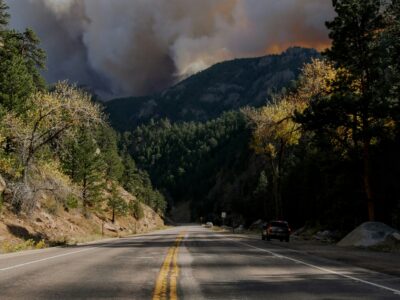“The Devil’s Excrement”
 That was the phrase used in 1975 by OPEC co-founder and Venezuelan Oil Minister Juan Perez Alfonso to describe crude oil: Perez predicted that it would bring wealth, but also ruin. Fortunately for the rest of us, the Organization of American Historians has devoted the most recent issue of the Journal of American History to pursue its scatological interests. The result is a terrific symposium, “Oil in American History,” that anyone interested in the environment should check out. (Many thanks to OAH for making the whole issue free on-line).
That was the phrase used in 1975 by OPEC co-founder and Venezuelan Oil Minister Juan Perez Alfonso to describe crude oil: Perez predicted that it would bring wealth, but also ruin. Fortunately for the rest of us, the Organization of American Historians has devoted the most recent issue of the Journal of American History to pursue its scatological interests. The result is a terrific symposium, “Oil in American History,” that anyone interested in the environment should check out. (Many thanks to OAH for making the whole issue free on-line).
Environmental history is a relatively new subdiscipline. My first encounter with it was William Cronon’s now-classic Changes in the Land: Indians, Colonists, and the Ecology of New England (1983), which I read in college. It’s a terrific book, but for undergraduates, it wasn’t what we expected: “I’ve just read a 200-page book about grass,” commented a classmate. No matter: it was worth it. And since the 1980’s, the field has really burgeoned, as evidenced by the OAH symposium:
This special issue of the Journal of American History, “Oil in American History,” addresses one of the most central and controversial topics of contemporary political and social debates: the reliance of the United States and its citizens on petroleum and its by-products. For decades, American society has run on oil. Yet despite its nearly pervasive role in our daily lives, few Americans have ever directly viewed the oil that travels from the well to their cars, and most consumers have had only a vague sense of their dependence on a multitude of synthetic materials derived from oil. Similarly, oil is largely invisible in many narratives of twentieth-century U.S. history. Prompted by a growing awareness of oil’s centrality to American life following a dramatic rise in crude prices, the spectacular drilling disaster in the Gulf of Mexico in 2010, and concern about climate change driven by the use of fossil fuels, this special issue assembles a variety of approaches to writing oil into U.S. history.
Here is Table of Contents. As you can see, the articles are quite short, so it is designed for a more general audience. It’s the sort of high-quality yet popular scholarship that is needed more. Check it out:
- Introduction: A Decidedly Valuable and Dangerous Fuel by Jay Hakes, p. 19
- Oil and the American Century by David S. Painter, p. 24
- Oil for Living: Petroleum and American Conspicuous Consumption by Brian C. Black, p. 40
- Blessed by Oil, Cursed with Crude: God and Black Gold in the American Southwest by Darren Dochuk, p. 51
- Culture Clash: Foreign Oil and Indigenous People in Northern Veracruz, Mexico, 1900–1921 by Myrna Santiago, p. 62
- Fueling the Boom: Gasoline Taxes, Invisibility, and the Growth of the American Highway Infrastructure, 1919–1956 by Christopher W. Wells , p. 72
- Oil in the City: The Fall and Rise of Oil Drilling in Los Angeles by Sarah S. Elkind, p. 82
- An Incomplete Solution: Oil and Water in Louisiana by Craig E. Colten, p. 91
- Bucking the Odds: Organized Labor in Gulf Coast Oil Refining by Tyler Priest and Michael Botson, p. 100
- Petropolis and Environmental Protest in Cross-National Perspective: Beaumont—Port Arthur, Texas, versus Minatitlan-Coatzacoalcos, Veracruz by Christopher Sellers, p. 111
- There Will Be Birds: Images of Oil Disasters in the Nineteenth and Twentieth Centuries by Kathryn Morse, p. 124
- Imaging the “Devil’s Excrement”: Big Oil in Petroleum Cinema, 1940–2007 by Robert Lifset and Brian C. Black, p. 135
- Exxon and the Control of Oil by Joseph A. Pratt, p. 145
- U.S. Oil Companies, the Nigerian Civil War, and the Origins of Opacity in the Nigerian Oil Industry by Kairn A. Klieman, p. 155
- Anonymity and Ambivalence: The Canadian and American Oil Industries and the Emergence of Continental Oil by Paul Chastko, p. 166
- Crisis and Continuity in U.S. Oil Politics, 1965–1980 by Paul Sabin, p. 177
- Building America’s First Off shore Oil Port: loop by Jason Theriot, p. 187
- Texas Metropole: Oil, the American West, and U.S. Power in the Postwar Years by Karen R. Merrill, p. 197
- America, Oil, and War in the Middle East by Toby Craig Jones, p. 208
- “Fetched Up”: Unlearned Lessons from the Exxon Valdez by Stephen Haycox, p. 219
- The Seventeen-Year Overnight Wonder: George Mitchell and Unlocking the Barnett Shale by Diana Davids Hinton, p. 229
- The Dilemmas of Oil Empire by Tyler Priest, p. 236
- The Risks of Dead Reckoning: A Postscript on Oil, Climate Change, and Political Time by Karen R. Merrill, p. 252







Reader Comments